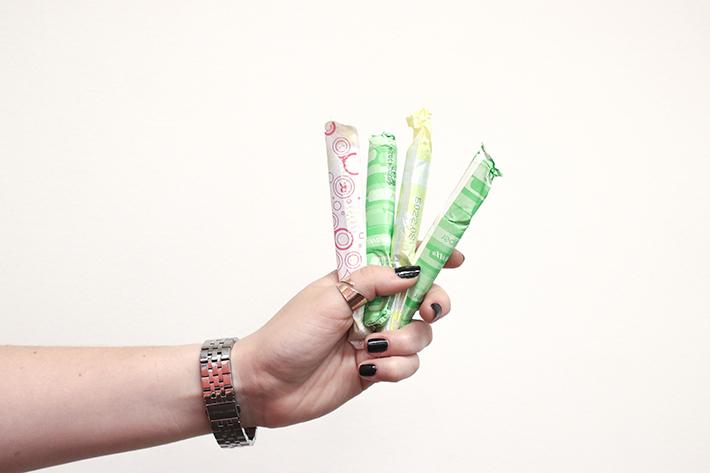Students Push to Make Women’s Health at NYU a Priority
NYU is one of several Universities to offer free tampons to its students.
September 21, 2016
NYU provides student residents with numerous hygiene products free of charge: toilet paper, condoms, trash bags and even light bulbs. However, menstrual hygiene products, such as tampons and sanitary napkins, are unavailable in NYU spaces.
On July 21, New York lifted the sales tax on menstrual hygiene products in public areas, and some students are calling on NYU — a private institution — to begin supplying tampons and pads as well.
CAS senior Allison Kiteley serves as the treasurer of the Feminist Society at NYU, which works towards gender equality everywhere. She believes this would be a small price with great outcomes.
“For a person who’s attending NYU, generally speaking, it’s not an issue cost-wise to buy pads and tampons,” Kitely said. “I feel like [cost] an aspect of it, but it’s very much also the principle of the thing. It starts to feel like that kind of healthcare isn’t valued as an important part of a student’s life, when, for many, many of us, it is.”
Kitely believes that the state’s recognition of menstrual products as a necessity should prompt NYU to come to the same conclusion. This year, the Feminist Society plans to put on programs such as panels and documentary screenings as part of its outreach.
Gallatin senior Josy Jablons is the President of Students for Sexual Respect, another club that advocates for female rights — but on a more targeted spectrum of empowering women.
Jablons actively works towards shedding more light on menstrual hygiene products, and is currently writing a resolution to bring to the floor of the Student Senators Council to bring free menstrual hygiene products to campus.
“It is crucial to recognize that people of all genders can menstruate, and we intentionally strive for gender-neutral language in our campaign,” Jablons said.
She hopes that with the club’s present efforts, there will be a conclusive dialogue with NYU in the near future.
Gallatin junior Emily Hockett works with Jablons on this project as the Vice President of Students for Sexual Respect, and she said that the club is leading the movement to have NYU provide free hygiene products for its students. She provided a list of four key things the club’s campaign strives to achieve:
- That products are available in a variety of sizes, since flow varies depending on the person and time in the cycle
- They are conveniently located (Columbia discontinued their program this fall because the products were allegedly not being used by students, but this was because the products were kept in the student health center instead of in the bathrooms)
- Products be accessible to students regardless of gender identity
- Funding comes from the school’s budget and not from the resources allocated to student clubs.
CAS senior Faiza Haq, the co-president of Women’s HERstory month, is also an activist for this issue. She said that other universities, such as Columbia and Brown, began programs to provide menstrual hygiene products for students who need them.
“Brown University just made tampons and pads available in both male and female bathrooms,” Haq said. “If Brown can do it, why can’t NYU? If it’s been feasible at another university, it could happen here.”
Columbia alum and former Student Council President Ben Makansi played a vital role in the installment of free pads and tampons at the university. Although there was some tension with the school’s Health Services this year, the program successfully started last spring.
“It wasn’t very complicated, honestly, just because it was a pretty straightforward service. You just buy the feminine hygiene products and put them out there to grab,” Makansi said. “It seemed like having a central location where feminine hygiene products are stashed would be really valuable and alleviate that discomfort.”
He also said Columbia’s Health Services Center keeps baskets with different varieties of pads and tampons, and people can take any product they need.
Steinhardt alumna Arielle Solomon was a former board member of Women’s HERstory Month at NYU, and she actively worked towards encouraging the university to provide free menstrual hygiene products. She said that NYU should take action regardless of whether or not there is a tax on tampons and sanitary pads.
“There’s no luxury tax on toilet paper either, and that’s still provided to us as a necessity,” Solomon said. “If we can get condoms, why can’t we get that kind of thing? I don’t necessarily think it’s something NYU should do in light of the taxes. It’s NYU’s responsibility to be socially responsible.”
The NYU Student Health Center was unavailable for comment at this time.
Email Natasha Roy at [email protected].
























































































































































